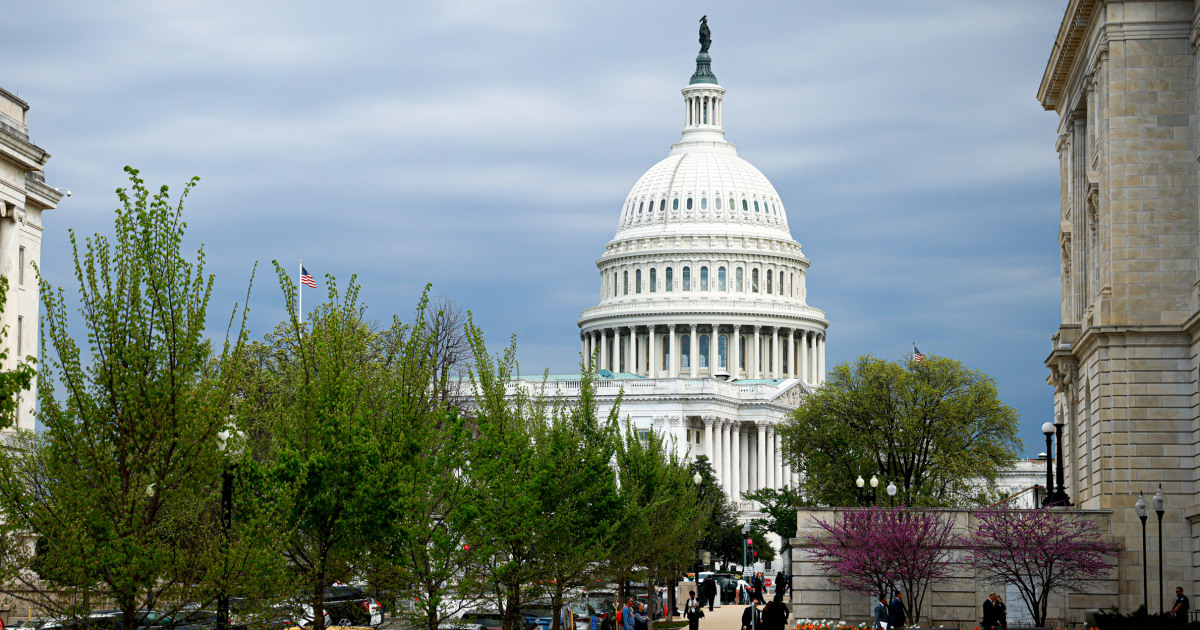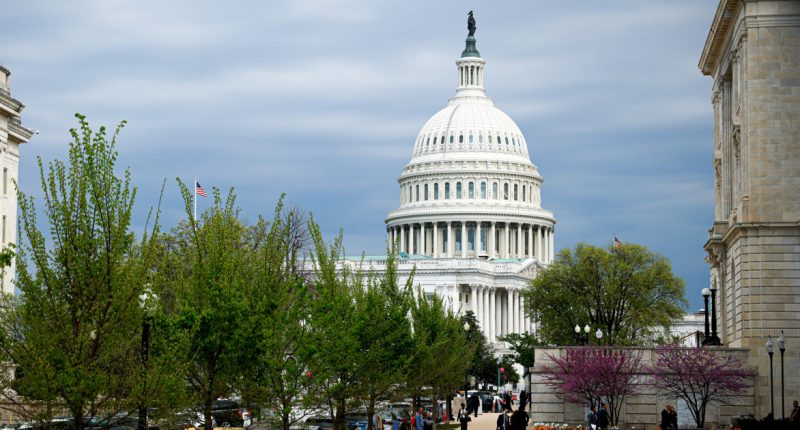
Hundreds of billions of dollars’ worth of frozen Russian government assets are sitting in banks across the U.S. and Europe and on Saturday a vote is expected in the House of Representatives that would pave the way for President Joe Biden to confiscate billions of them and hand it over to Ukraine.
“Somebody has to pay for reconstruction,” said former U.S. Ambassador to Russia Michael McFaul, a proponent of using the Russian assets to help Ukraine, in an interview Friday. “And I think it should be Putin, not the American people.”
The REPO Act, which would authorize Biden to confiscate the frozen Russian assets in U.S. banks and transfer them to a special fund for Ukraine, is part of the foreign aid package that has been stalled for months in the House. More than $6 billion of the $300 billion in frozen Russian assets are sitting in U.S. banks. Most of the $300 billion are in Germany, France and Belgium.
On Wednesday, Speaker of the House Mike Johnson released the package which would include tens of billions of dollars in aid for Ukraine, Israel, and Taiwan.
“I’m going to a allow an opportunity for every single member of the House to vote their conscience and their will on this,” Johnson told reporters, defending his decision to allow the vote to go forward Saturday.
Russian President Vladimir Putin and his government invested heavily in the euro and the dollar over the years to keep the ruble stable, planting some $300 billion worth of foreign currency reserves.
But in early 2022, following Putin’s invasion of Ukraine, all of the Group of Seven (G7) countries including the U.S., U.K., Canada, France, Germany, Italy and Japan banded together and froze all of the $300 billion dollars of Russian foreign currency reserves held in banks in those countries, most of the money in Europe.
“The Russians were surprised when, right after the war started, the Europeans took the exact same measures as the United States, freezing all of the reserves that were there and the Japanese did the same, which is why most of Russia’s reserves today are frozen in western banks,” said Chris Miller a professor at the Fletcher School at Tufts University.
The idea to confiscate the Russian assets emerged last year and has been hotly contested by economists and foreign policy experts.
In a recent op-ed in the New York Times, contributing opinion writer Christopher Caldwell argued that it’s a “terrible idea” to confiscate the Russian funds because other countries might stop investing in the U.S. which could negatively affect the economy in the long run.
“This could weaken the dollar’s status as the main global reserve currency. The dollar is probably the most valuable strategic asset the United States has,” Caldwell argued.
McFaul, whose been lobbying for the REPO Act for months, clapped back at Caldwell’s assertion and said the use of Russian assets for Ukraine would send an important message to autocratic nations around the world.
“There are those that say, ‘Well, this will hurt the dollar. It’s bad for our reputation.’ I have a pushback to that. I don’t want criminals investing in American Treasury bonds,” McFaul said.
One of the diplomatic challenges would be to convince the other G7 countries to do the same. While the U.K. is on board with the idea, France and Germany have been reticent.
“We’re making good progress in how to access that funds on an agreed basis that I think we can take forward to the G7,” U.K. foreign minister David Cameron told reporters April 9.
Amid the diplomatic maneuverings, one group in the background has been persistently applying pressure on members of Congress, the White House and G7 countries to move forward with the idea of confiscating the funds.
The Renew Democracy Initiative, a Washington DC-based nonprofit organization promoting democracy and American interest overseas sent a letter Friday urging Majority Leader Johnson and House Minority Leader Hakeem Jeffries to work together to get the REPO Act passed.
“Your leadership through legislative action will increase the likelihood that the administration does what is necessary to confiscate Putin’s billions,” wrote RDI Chairman Garry Kasparov and RDI CEO Uriel Epshtein.
In an interview Friday, Epshtein said he believes it will take U.S. action to bring about a G7 collaboration to confiscate the funds.
“Other G7 countries will only act to confiscate Russian assets if the U.S. leads,” said Epshtein.
Source: | This article originally belongs to Nbcnews.com










